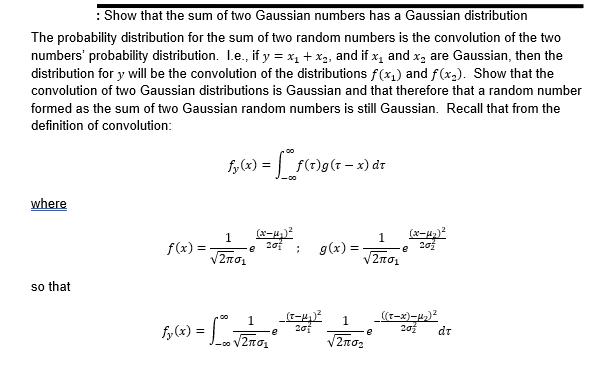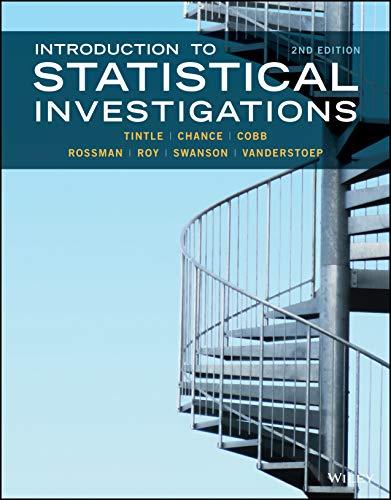Answered step by step
Verified Expert Solution
Question
1 Approved Answer
: Show that the sum of two Gaussian numbers has a Gaussian distribution The probability distribution for the sum of two random numbers is


: Show that the sum of two Gaussian numbers has a Gaussian distribution The probability distribution for the sum of two random numbers is the convolution of the two numbers' probability distribution. I.e., if y = x + x, and if x and x are Gaussian, then the distribution for y will be the convolution of the distributions f(x) and f(x). Show that the convolution of two Gaussian distributions is Gaussian and that therefore that a random number formed as the sum of two Gaussian random numbers is still Gaussian. Recall that from the definition of convolution: fy(x) = f(t)g (r - x) dr where so that 1 (x-) f(x) = -no fy(x) = +00 201 ; g(x)= = 1 _(T-H) 201 20 1 20 1 _((T-x)-) 201 20 (x-) 8 20 e dr Hint: The shortcut for performing the convolution is to use the convolution theorem of Fourier analysis. First, take the Fourier transforms of the two distributions, f(x) and g(x), then multiply them together, and then take the inverse transform of that product.
Step by Step Solution
There are 3 Steps involved in it
Step: 1

Get Instant Access to Expert-Tailored Solutions
See step-by-step solutions with expert insights and AI powered tools for academic success
Step: 2

Step: 3

Ace Your Homework with AI
Get the answers you need in no time with our AI-driven, step-by-step assistance
Get Started


